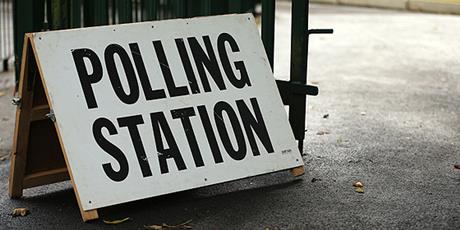Well – if you’re making promises…
At the time of writing the election campaign is hotting up (or getting overcooked if it’s not the kind of thing that floats your boat). Certainly with the closeness of the race at this point there must be a dreadful temptation for politicians to make promises. If only they can find the issue that will break the deadlock – or give them a louder voice if their future is as the minor partner in a coalition… Well, if they’re looking for critical issues, I’ve a few suggestions.
Now, there’s an argument to say that education should be separated from politics. I think there is an argument for having agencies outside government dealing with the detailed business of curriculum development. This works with assessment. However, I’ve been in this game long enough to have worked in education when it wasn’t ‘up on the radar’ and funding was much tighter then. If it’s not a priority it runs the risk of being marginalised. Politicians across the spectrum understand that education is an economic driver and that STEM subjects have a particular relevance.
Anyway – the priorities. What should we ask for if politicians are distributing largesse? These are my nominations for things that would help in science education. Oh, and in the spirit of the current debate, they’re fully costed.
- Recognise an alternative qualification to GCSE Combined and Separate Sciences. There’s been a lot of focus on developing a new curriculum at KS4 that challenges pupils and gives them ‘something to get their teeth into’. This is fine and it may well work. However these courses may prove to be less suitable for some lower attaining students who nevertheless would benefit from developing their understanding of science. The challenge here is to devise and recognise something which doesn’t detract from GCSEs yet offers an alternative curriculum pathway. Don’t go down the route of equivalences but allow the development of something that teachers can use to engage students. Even better if it encouraged some students to work towards technical qualifications. Cost: zip. The Awarding Organisations will develop it and Ofqual will recognise it.
- Include Technology in the Ebacc. The current Ebacc qualifiers are too narrow in their basis. It’s a paradox that the education world is an inverse of the outside world as regards the relative profile of STEM subjects. Science and Maths are big in the school curriculum but far fewer people are employed as scientists or mathematicians than as technologists or engineers. If we’re serious about developing the next generation of STEM experts this would help. Cost: zilch. Just include it.
- Period of consolidation. Please. There’s a good case for having an effective framework for content, skills and structure, and then letting teachers explore and embed quality schemes of learning. Change the framework, as is happening now, and it takes everything back to the starting blocks. Once it’s sorted, stand back, let teachers work their magic and allow it to come alive in the classroom. Cost: nada. Be effective by doing nothing.
- Come clean on assessment at KS1, 2 & 3. Identify a range of effective practice in using assessment to improve learning and circulate it. At the moment too many schools are sticking with levels, not because it’s a great system but because there doesn’t seem to be much of an alternative and there’s a sneaking suspicion they’ll be brought back in. Cost: none. There are organisations (such as charitable education trusts) that will do the ground work and you just need to recognise them as valuable contributions and the kind of thing that schools should be looking at.
- Don’t keep altering the performance indicators. The Progress 8 measures can be made to work well and remove the obsessive focus on C/D borderline students. Then leave it alone. Schools know they need to be held accountable but moving the goalposts winds them up. Cost: nope. Just sit tight.
Whoever the next Secretary of State for Education is, they should remember that reforms work better if teachers are on board. They also work better if the timescale is realistic and we feel we’ve had chance to implement them in a measured way. Now, let’s see who’s in listening mode…
Ed Walsh
17/4/15



